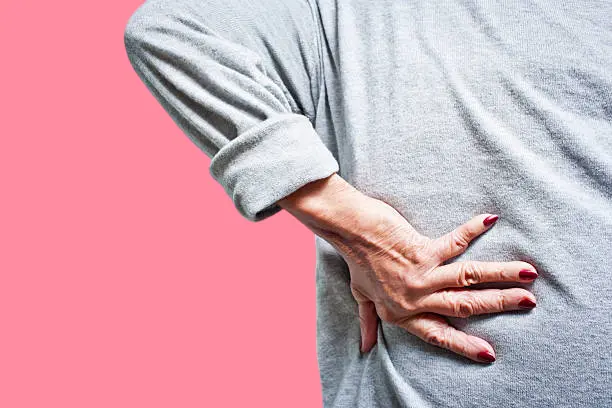Calcium is essential for maintaining bone density and vital bodily functions, especially in older women.
With age, the risk of osteoporosis increases due to hormonal changes and decreased nutrient absorption. Therefore, ensuring adequate calcium intake is a crucial part of both prevention and treatment.
The Role of Calcium in Bone Health

Calcium plays a vital role in treating osteoporosis and maintaining bone strength by:
- Supporting the skeletal structure and preventing weakness.
- Improving bone regeneration.
- Reducing the risk of fractures with age.
The Relationship Between Calcium and Hormones in Women
Hormonal changes affect calcium absorption, which in turn impacts osteoporosis treatment because:
- A decrease in estrogen levels reduces bone density.
- The need for increased calcium intake after menopause.
- Promoting hormonal balance to protect bones.
Essential Natural Sources of Calcium
Calcium can be obtained from foods that help treat osteoporosis, including:
- Milk and dairy products such as yogurt and cheese.
- Leafy green vegetables such as broccoli and spinach.
- Canned fish such as sardines and salmon.
- Nuts and seeds such as almonds and sesame seeds.
Dietary Supplements and Their Role in Treating Osteoporosis
Supplements are used to treat osteoporosis by compensating for calcium deficiency when diet is inadequate:
- They are available in various forms, such as tablets or chewable capsules.
- The dosage should be determined under medical supervision.
- They are beneficial for women who suffer from poor calcium absorption.
The Relationship Between Vitamin D and Calcium
Vitamin D helps in treating osteoporosis because it contributes to calcium absorption from the digestive system. Therefore, it is important to:
- Get moderate sun exposure to stimulate its production.
- Supplementation is essential for the elderly.
- A deficiency reduces the effectiveness of calcium therapy.
The Impact of Lifestyle on Enhancing Calcium Absorption

A healthy lifestyle can help treat osteoporosis by improving calcium absorption through:
- Exercise, especially resistance training.
- Reducing caffeine and carbonated beverage consumption.
- Avoiding smoking, as it accelerates bone loss.
Recommended Doses for Elderly Women
Calcium dosages used to treat osteoporosis vary according to age:
- Women over 50 often need 1200 mg daily.
- The dosage may be increased in cases of severe osteoporosis.
- It is important to distribute calcium intake throughout the day for optimal absorption.
Important Note: Consult your doctor before taking calcium supplements.
Frequently Asked Questions about Calcium and Osteoporosis in Women
Can food alone be the source of calcium for treating osteoporosis?
In mild cases, yes, but supplements are often required.
Does calcium cause kidney stones?
Taking large doses without medical supervision may increase this risk.
What is the best time for elderly women to take calcium?
It is best to take it with meals to enhance absorption.
Can vitamin D be omitted when taking calcium supplements?
No, it is essential for effective calcium absorption.
Article Summary
Calcium is an essential element in treating osteoporosis, especially in older women who are at increased risk of developing the condition due to hormonal changes.
Ensuring adequate calcium intake through food and supplements, along with vitamin D supplementation and a healthy lifestyle, helps improve bone density and reduce the risk of fractures. Early attention to bone health is a crucial step towards healthier aging.